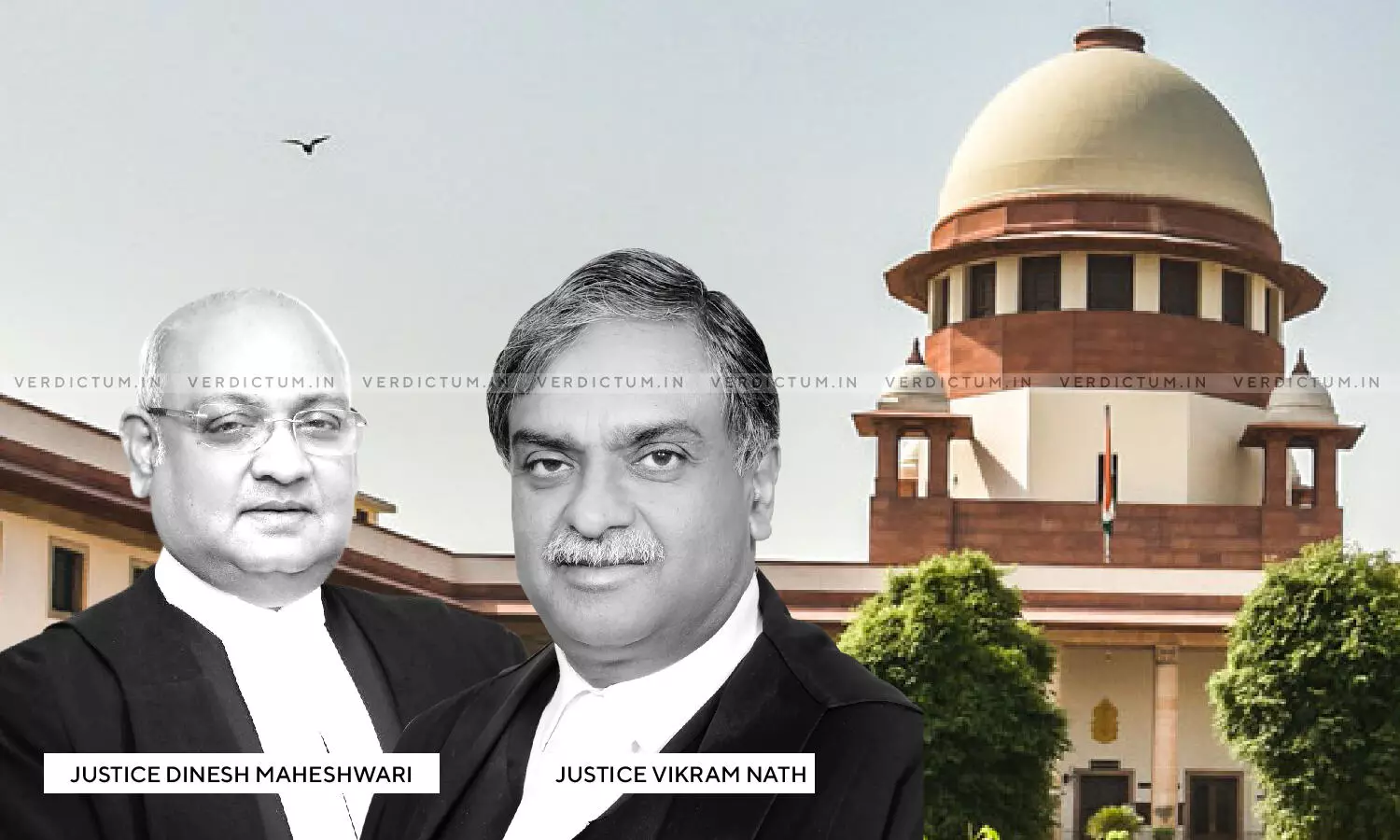
In Suit For Damages, Ad Valorem Court Fees Is Payable On Amount Of Damages Claimed - Supreme Court
 |
| A two-judge bench of Justice Dinesh Maheshwari and Justice Vikram Nath while placing reliance on various precedents has held that in a suit for damages, ad valorem Court-fees would be payable on the amount of damages claimed.
Respondent - Plaintiff had retired as DDPO and was the youngest freedom fighter in the Quit India Movement but he was denied a certificate of 'Freedom Fighter' by the authorities due to which his grandson could not claim the benefits of the same. He filed two Writ Petitions before the Chandigarh High Court against the non-issuance of the certificate out of which one was allowed and the other was disposed of.
Later he filed a suit for compensation for the damages which he had to suffer due to litigation, losses suffered by his grandson, and the mental tensions which he had to face. The amount of damages claimed in the plaint was estimated to be Rs. 20 Lakhs.
The valuation of the suit both for the purpose of court fees and jurisdiction was fixed at more than Rs.20 lakhs but court fees of Rs.50/- were affixed relying upon the judgment of Punjab & Haryana High Court, Ajit Singh Kohar Vs. Shashi Kant allowed the petitioner to pay the court fee on the sum to be adjudicated as damages by the lower court in due course of time, but not at the initial stage. On an application under Order VII Rule 11 by the appellants, the Trial Court directed the respondent to file the court fee on the amount of Rs. 20 Lakh as claimed.
Later a revision petition preferred by the respondent under Section 115 of CPC was allowed by the High Court which reversed the order of the Trial Court and rejected the application under Order VII Rule 11 CPC.
Appellants were represented by Ms. Uttara Babbar, Advocate, and on behalf of the respondent- Shri Abhimanyu Tiwari, Advocate appeared before the Apex Court.
The issue which dealt with by the Court was -
Whether the suit in question as framed was a money suit for compensation/damages falling under Clause (i) of Section 7 or was a suit falling in any of the categories specified in clause (iv) of Section 7 of the Court Fees Act.
In this context, the Bench held, "It is only with respect to the category of suits specified in clause (iv) of Section 7 of the Act that the plaintiff has the liberty of stating in the plaint the amount at which relief is valued and Court-fees would be payable on the said amount. Liberty given under clause (iv) to the specific suits of six categories is not available to the suits falling under any other clause, be it (i), (ii), (iii) etc. Once the suit in question was a money suit for compensation and damages falling under clause (i) of Section 7 of the Act, ad valorem Court-fees would be payable on the amount claimed."
The Supreme Court after referring to Section 7 of the Act in detail held that the suit had to be considered as a money suit for compensation/damages under clause (i) of section 7 and not falling under any categories of clause (iv) of Section 7 of the Court Fees Act.
The Bench additionally noted that in this case, the Respondent had not given a separate valuation for relief sought, and rightly so, as it had no liberty and right to give a different valuation than what was being actually claimed.
Supreme Court finally held that the valuation for the purposes of jurisdiction and relief has to be the same in the money suits falling under category 7(i). It was only in category of suits covered by Clause (iv) of Section 7 that there could be two different valuations for the purposes of jurisdiction and for relief sought. In this context, the Court added -
"The valuation for the purposes of jurisdiction and relief has to be the same in the money suits falling under category 7(i). It was only in category of suits covered by Clause (iv) of Section 7 that there could be two different valuations for the purposes of jurisdiction and for relief sought."
The Court referred to the judgments on which the Appellants had placed reliance on Ranjit Kaur vs. PSEB and Manjeet Singh vs. Beant Sharma, where it was held that in a suit for damages, ad valorem Court-fees would be payable on the amount of the damages claimed.
Accordingly, the Court held that High Court fell into error in setting aside the order passed by Trial Court whereby it had granted time to the plaintiff-respondent to make good the Court-fees within a particular period failing which the plaint would stand rejected.
Thus, the Court allowed the appeal and set aside the impugned order of the High Court and restored the order of the Trial Court directing the Respondent to pay the Court fee on the valuation of Rs. 20 lacs.
Click here to read/download the Judgment